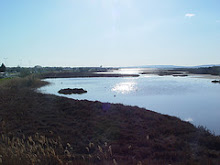I don't have pictures in this post for a reason. Instead, it will be filled with just cold hard facts and a few of my beliefs based on the reading I've done on this topic over the past 5 years. I was saddened and touched by some of the comments I received, because so many of you have either experienced the hardships of trying to lose weight, or some of you understand, because of the loss of a loved one, how unimportant weight truly is.
But the comment I loved the most was from someone Anonymous. Someone who truly is trying to change her way of thinking...or maybe it's a he, and not a she. Here is the comment for those of you who want to read it.
Anonymous has left a new comment on your post "Something's Been Weighing on Me":
So glad you found out how to help yourself. I hope that you are on the path to healing.
It probably comes from living in looks-oriented LA, but I have to say I have caught myself thinking unkind thoughts when I see the pictures of the folks in Kansas and Missouri. I've caught myself wondering why everyone is so fat and has so many kids. From the pictures I've seen, even the kids are fat. One lady is pregnant and already has a 15 month old, 3 and 5 year olds, you just don't see that here.
How can these folks expect the earth to keep going when we have over-populated the way we have?
I am working on trying to change my mindset that there is something "wrong" with these folks, but I have to wonder why the kids are all heavy too.
You might think that I would be upset by their comment that was questioning why he/she is seeing so many obese people specifically in Kansas and Missouri (the children question is one I can't explain), but I can address the obesity issue to some degree. When you can't lose weight, and you know that you are doing everything in your power to eat right, make the right choices and exercise, you tend to do a LOT of reading on this topic...and I have to tell you that what I learned is frankly a little shocking and a lot scary.
It would be great to think that only a few states in the US are suffering from an obesity issue...but that is misguided to say the least. The reason I say that it would be great if the epidemic was confined to a small geographic area is because then we could truly figure out what the issues were...climate?...intake?...exercise habits?...etc. But the truth is we are a nation...not an individual or even a state of people becoming obese.
Let's take a look at some facts...the following info is from the CDC who has tracked obesity trends since 1985, and the trends are alarming.
U.S. Obesity Trends
Trends by State 1985–2009
Obesity is defined as a body mass index (BMI) of 30 or greater. BMI is calculated from a person's weight and height and provides a reasonable indicator of body fatness and weight categories that may lead to health problems. Obesity is a major risk factor for cardiovascular disease, certain types of cancer, and type 2 diabetes.During the past 20 years there has been a dramatic increase in obesity in the United States. In 2009, only Colorado and the District of Columbia had a prevalence of obesity less than 20%.
So based on this sort of data, which you see much more of by following this LINK, you can see that no state has been untouched by the growing problem of obesity. So if it's occurring in every single state and affecting every single age group then that means something is going on.
You might think, well California has a lot of outdoor activities...I've actually lived there so I know that you can go to the beach in the morning and then hike the mountains later in the day, yet they aren't the state with the lowest obesity rates.
When I began my journey to get better, it wasn't based on the fact that I wasn't eating well, I was already eating pretty well, but what does that mean in this country? Growing up, we grew most of our own vegetables, my mother and grandmother canned things and even made their own homemade ketchup.
So should we blame McDonalds and other fast food chains for the obesity epidemic? The answer is both yes and no. Yes, in that by putting fast food within easy access of millions of Americans and providing sugary drinks and super sized meals, that type of food and the shear quantity of high caloric low nutrition food was bound to have some negative repercussions for us as a society. But there are plenty of overweight people who almost never eat fast food, and who think they are eating healthy food. Now, look, I know there is a segment of the population who overeat, or have bad relationships with food...but haven't those people always existed...so why the dramatic increase in obesity in the last 20 years? Has suddenly a majority of our country become overeating pigs?...I don't think so.
What has changed is the way our food is grown, manufactured, processed, and served. It used to be that food was eaten in season, or canned and frozen for use at other times of the year. As fertilizers and insecticides developed, fruits and vegetables could now be grown almost year round and then shipped all over the country...often ripened while in transit by artificial means. People loved it, they could now have oranges whenever they wanted, grapes out of season, and everything looked SO good...almost to the point of being perfect. Blemishes on fruits were a thing of the past, and vegetables where larger than they had ever been. This made the buyers happy, and increased crop production meant more money in the pockets of the farmers who were utilizing these new methods. Hybrid plants, soybeans, and lots of other new and cool things began to appear as the norm in grocery stores.
Along the way, the mom and pop grocery stores fell by the wayside. They could no longer compete with big chain grocers who moved into towns and could offer better looking produce at lower prices. The trickle down effect was felt by everyone. Farmers had to join the fertilizer/pesticide bandwagon because the public was demanding these new beautiful foods, and with greater yields and more money for the farmers...what was not to like right? The FDA told us that certain levels of pesticides in our diet were ok, so don't worry, eat up! They also loved to tell us how great a diet rich in carbohydrates and frozen foods could be...processed food is good...it's the future. Remember how TV dinners were all the rage...and Jiffy Pop Popcorn? We rarely if ever got those in my house growing up...to me, those were bought by the "lucky" kids whose parents really loved them. :-)
In Europe, these practices didn't catch on so much. For one thing, in many of the European countries there just isn't enough land to support huge farms, so to some degree they maintained the lifestyle of eating foods in season and not over producing.
If you go to France, you will find that most of the restaurants visit several markets almost daily to buy their produce and meats. They drive to these food markets and buy only enough for a few days. That means that they buy only the best, and the farmers know that. Since our restaurants tend to over purchase or buy things in bulk, it makes sense that they want to get rid of what they have invested so that often means that we have much larger portions, yet those meals are hardly ever satisfying...but hey they're cheap right...and you got to bring half of it home...so it's good right?
Because the way we grow our food has changed, so has its nutritional value. Studies have shown that the fruits and veggies our grandparents and great grandparents ate had twice the nutrient rich density that our new more beautiful produce has today. So you would have to eat twice as much in order to get the same nutritional benefit. But the truth is we don't eat twice as many veggies and fruits as our grandparents ate...in fact some studies suggest that the average person used to consume over 100 lbs of fruits and veggies per year and now that figure is more like 11 lbs. And the statistics are particularly grim for children. Remember when they considered ketchup as a vegetable in most American schools?!
When foods aren't filling our nutritional needs, that means that for some people they need more to be able to function, or have their bodies function...so portion sizes grew. And the result was that people came to expect large portions...ridiculously large to be exact. This is another key difference between us and many other countries. Have you ever noticed that most other countries don't have these large portions, yet you feel more satisfied with less food when you visit there on vacation? And somewhere along the line, some Americans have developed this belief that if we bought it...whether it's a dinner out somewhere, or sitting in our fridge, then we HAVE to consume it...we have to get our money's worth right? Meals in restaurants are no longer about spending time enjoying friends or family, they are about getting the most for your money, even if it's just plain bad for you...as long as it's quick and cheap, it's "good."
Now, produce is just one piece of the puzzle. Meats and grains are a whole other ballgame. The beef we consume today bears little resemblance to that consumed in this country 100 years ago. Cows of yesteryear were allowed open pasture land to graze on grass. And then someone realized that they could make cows a lot fatter a lot faster, and the top grade meats would have that all important USDA Choice label signifying the desirable marbling (which is fat folks), by feeding them corn. Cows were never meant to eat corn, but it's like candy to them and it fattens them up making them much more valuable as a commodity. The same is true for poultry, farm raised fish, pork, and most meats.
So why is that bad you ask? I mean if the cattle rancher can make some extra dough and we get bigger steaks that sounds like a great plan right? If you are eating things whose entire diet has been manipulated so drastically in the last 50 years...don't you think it might have some effect on you as a society at some point? If the diet of the cow has been drastically lowered in nutritional content, then it stands to reason that the nutritional content we will garner by eating beef will be lowered in direct proportion.
For some people, these drastic and very radical changes in the way we eat doesn't affect them. Kind of the same way that some people can go to war and come home relatively unscathed, while others who are put into the exact same situation will suffer from PTSD. We all have friends that can seemingly eat whatever they want, never exercise, and still stay a size 6. And we also know people, or are ourselves those people who eat an extremely healthy diet, exercise, and can't lose weight. So if simply eating less and exercising more was the answer then it wouldn't be that hard, and the rates of obesity wouldn't be skyrocketing. And even if you are one of those people who this trend in poorer quality food is seemingly unaffected...there is nothing to say that your children might not be so genetically lucky.
Now, I know I'm painting a broad brush, much like the anonymous commenter did. It's true that kids don't get as much exercise as they once did and many Americans lead a more sedentary lifestyle...but that's not the whole story folks. We need to look long and hard at what we are putting into our bodies. This isn't something that you can blithely say..."not in my state," because it's in EVERY state. And people are wising up and seeking out organic alternatives...but we have a very long way to go before all things will be equal for all people in regard to being able to access healthy alternatives.
I have spent a fortune buying grass fed only beef, eating organic veggies and fruits, and avoiding anything with soy (it mimics estrogen so I can't have it because it makes my thyroid condition and PCOS worse!). The prices we pay for healthy organic food are astronomical in this country, and the fact is that many low income families, who also happen to be those most likely to be overweight and develop diabetes, can't afford the luxury of eating nutritious organically grown food.
I'm one of the lucky ones, who does have the ability to drive 2 hours to source grass fed only beef, pasture raised poultry and pork, and organic items that aren't available in my area. But the single mother on food stamps doesn't have those same options.
Organic isn't about wearing crinkly skirts and living in a commune, it's about eating things the way nature intended them to be, not the way society wanted them to look. Without pesticides fruits and veggies are not quite as pretty as their pumped up competitors. Pesticides have been proven to be endocrine disrupting chemicals. They have also been shown to prevent your body from actually absorbing nutrients and getting the most you can from the foods you eat. Grapes, apples, peaches, strawberries, and many more fruits and other vegetables are sometimes called the dirty dozen, because these tend to be the ones most likely to have the highest concentrations of pesticide residue. But it's not just on the surface, and you can't just wash your fruits and veggies and rest comfortably in the knowledge that you've eliminated those chemicals from your diet...organic is the only way to help minimize those toxins. And for someone like me, it's not a fad or a way to be hip by eating organic...for me it's a matter of staying healthy.
It's kind of ironic, for many years people who were thin were the poorest members of most nations. Food was a sign of wealth, and in some countries being slightly overweight was desirable, because it meant you had the means to acquire food whenever you wanted it. I truly hope that someone like the Anonymous commenter, who had the guts to say what he/she was really thinking (which I truly do appreciate) will in fact stop the next time he/she has those sorts of negative feelings about someone solely based on their size. Ignorant, irresponsible people, lazy, bad people come in all shapes and sizes...and if society would stop portraying overweight people as all of those things maybe there would be less prejudice.
And one last thing, mostly because I was curious myself. According to the most current data (2009) from the CDC (Centers for Disease Control), California had more births per capita among women ages 15 - 44 at 527,011 births and a fertility rate of 68.5, while Missouri had 78,920 births and a fertility rate of 66.2. Kansas had 42,376 births and a fertility rate of 74.7, so slightly higher than California.
I'm sorry this post is so very long, but I think it's important for people to become educated on a whole host of topics and this one is near and dear to my heart so thank you for reading....*taps screen to see if you're still awake* :-)
P.S. After this post it will be back to the pretty pictures and my regular mindless ramblings...I promise!






















































































































